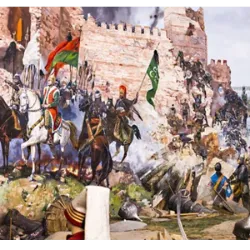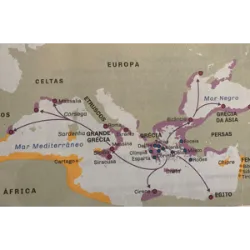The Fall of Constantinople in 1453

In 1453, the fall of Constantinople to the Ottomans, led by Sultan Mehmed II, marked the end of one of the oldest empires in history: the Byzantine Empire. The conquest of the city, a decisive milestone, profoundly altered the political and commercial dynamics of Europe.
With the weakening of the Byzantine Empire, the Ottomans established their dominance in the region and began to control important trade routes between the East and the West, impacting European trade. This led the European powers to seek new trade routes, stimulating the Age of Discovery and the great voyages of exploration, such as those of Christopher Columbus and Vasco da Gama, in an attempt to access the riches of the East.
In addition, the fall of Constantinople had significant cultural and intellectual implications. Many Byzantine scholars fled to the West, taking with them manuscripts and knowledge that contributed to the Renaissance, a period of great cultural, scientific and artistic effervescence in Europe.
This event not only marked the end of the Middle Ages, but also paved the way for the transition to the Modern Age, with great transformations in the fields of politics, culture and economy.
Did you know?












